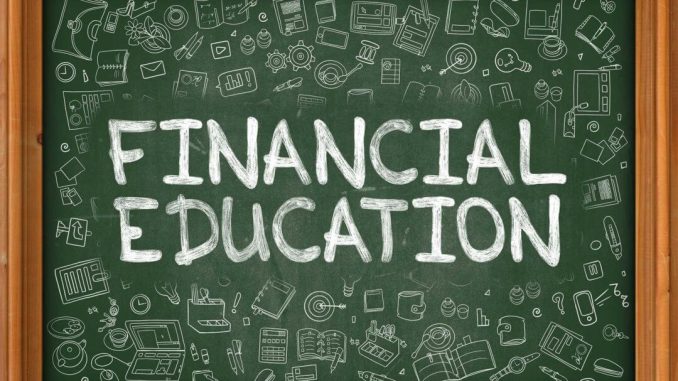
In today’s rapidly changing world, it is more important than ever for young people to develop a strong understanding of financial literacy. The ability to make informed decisions about money is not only crucial for personal financial success, but also vital for the overall economic health of our society. As we prepare the next generation to face the challenges and opportunities that lie ahead, it is imperative that we equip them with the necessary knowledge and skills to navigate the complex landscape of finances.
With this in mind, schools play a pivotal role in shaping and molding young minds. By incorporating financial education into their curriculum, educators can provide students with a solid foundation in managing money effectively. This blog post will explore why financial education in schools is so important and how teaching young talents about money can set them up for future success. So let’s dive right in!
The Importance of Financial Education in Schools
Financial education is not just about teaching students how to count money or balance a checkbook. It goes beyond basic arithmetic skills and delves into the realm of financial literacy. By incorporating financial education into school curriculums, we are equipping young individuals with essential life skills that will benefit them well into adulthood.
One key reason why financial education is important in schools is because it empowers students to make informed decisions about their finances. By understanding concepts such as budgeting, saving, investing, and debt management, students can develop healthy financial habits early on. This knowledge allows them to navigate real-world situations confidently and avoid common pitfalls that often lead to financial hardship.
Moreover, integrating financial education into the school curriculum helps bridge the gap between classroom learning and real-life application. Students can learn about topics such as compound interest or credit scores through interactive activities and simulations. This hands-on approach not only enhances their understanding but also encourages critical thinking and problem-solving skills.
Furthermore, by introducing financial literacy at a young age, we are setting a foundation for long-term success. The earlier children start developing good money habits – like distinguishing needs from wants or establishing savings goals – the better equipped they will be when they enter adulthood. Financially literate individuals are more likely to make sound decisions regarding investments, retirement planning, and overall wealth management.
In addition to personal benefits for students themselves, implementing comprehensive financial education programs in schools has broader societal advantages too. A financially educated population can contribute positively to economic growth by making wise spending choices and participating actively in the economy. Moreover, increased awareness about personal finance can help reduce levels of poverty and debt within communities.
In conclusion…
By prioritizing financial education in schools today, we are empowering future generations by arming them with essential tools for success in an increasingly complex world of finance. From cultivating responsible money management skills to fostering a deeper understanding of economic principles – the benefits of financial literacy are far-reaching. It is time to recognize the importance of financial education in schools and make it an integral part of every child’s education.
Teaching Young Talents About Money
Teaching young talents about money is crucial in ensuring their financial well-being and success in the future. By equipping them with the necessary knowledge and skills, we empower them to make informed decisions regarding their finances.
One effective way to teach young talents about money is through practical lessons and real-life examples. Instead of relying solely on theoretical concepts, educators should incorporate hands-on activities that simulate real-world financial situations. This can include budgeting exercises, investment simulations, or even starting a mini-business within the classroom.
Furthermore, integrating technology into financial education can greatly enhance engagement and understanding. Utilizing interactive apps or online platforms can make learning about money more enjoyable for students while also providing a convenient way to track their progress and set financial goals.
In addition to technical knowledge, teaching young talents about money should also focus on instilling good habits and values related to finance. Emphasizing the importance of saving, budgeting wisely, avoiding debt traps, and making responsible spending choices will enable them to develop lifelong positive financial behaviors.
By empowering our next generation with sound financial literacy skills from an early age, we are setting them up for success in managing their finances responsibly as they navigate through adulthood.
Too Long; Didn’t Read
H2: In today’s fast-paced world, financial literacy has become a vital skill for the next generation. As we have discussed in this article, the importance of financial education in schools cannot be overstated. By equipping young talents with the knowledge and skills to manage their finances effectively, we are empowering them to make informed decisions and achieve financial independence.
Teaching young students about money from an early age sets them up for success in adulthood. It allows them to develop good habits, such as budgeting and saving, that will serve them well throughout their lives. Financial education also helps reduce the risk of falling into debt or making poor financial choices later on.
However, it is not enough to rely solely on schools to provide this education. Parents and guardians play a crucial role in teaching children about money at home too. By having open conversations about finances and setting positive examples, families can reinforce the lessons learned in school and further enhance their children’s understanding of personal finance.
In conclusion (without using those exact words), by prioritizing financial literacy for the next generation, we can empower young individuals to take control of their own economic futures. With greater knowledge comes greater confidence when it comes to managing money wisely. Let us work together to ensure that our youth are equipped with the necessary tools for success in an increasingly complex financial landscape.